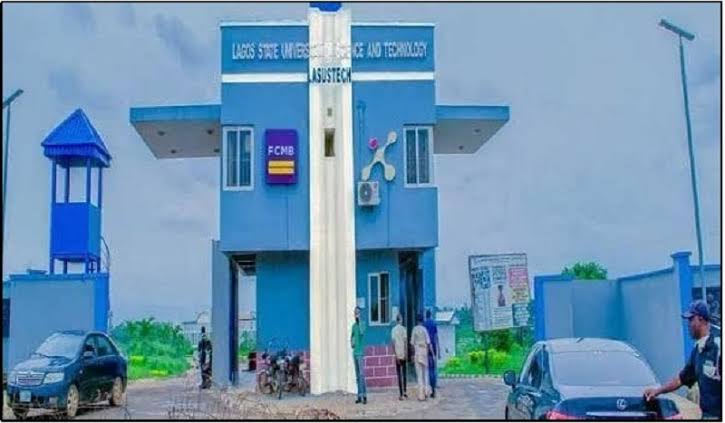
500 Students Per Class: LASUSTECH Undergraduates Call for Urgent Academic Reforms
By Our Reporter
Students at the Lagos State University of Science and Technology (LASUSTECH) are appealing to the institution’s management to address pressing challenges, including overcrowded classrooms, inefficient timetabling, financial burdens, and inadequate practical training.
The concerns emerged from interviews conducted by Union Campus Journalists with students across various departments and academic levels, revealing widespread dissatisfaction with current learning conditions.
Lawal Masturah, a 300-level Microbiology student, criticized the unpredictable class schedules and high cost of printing assignments. "Lectures are often scheduled without prior notice, and frequent printed assignments strain student budgets. The school should reduce printing requirements and allow handwritten submissions,” she said.
Overcrowding remains a major issue, particularly in science and engineering Colleges. Hanifa Wuraola, a 100-level Chemical Engineering student, said, “We sometimes sit on the floor because lecture halls are packed. It’s difficult to hear instructors, let alone concentrate.”
Abdulsalam Farhan, a 300-level Industrial Chemistry student, lamented the fast-paced curriculum. “Lecturers rush through topics without proper explanation, leaving students unprepared. More emphasis should be placed on understanding rather than just covering the syllabus.”
Students also expressed frustration with poorly structured timetables. Yusuf (200-level Mechatronics) and Olayinka Emmanuel (100-level Statistics) described their schedules as “overwhelming and poorly planned,” urging the administration to adopt a more student-friendly approach.
The lack of practical training was another recurring complaint. Comrade Onashokun Monsurudeen, a 300-level Civil and Construction Engineering student, said, “We need more hands-on sessions, not just theory.” He also accused some lecturers of unfair treatment, alleging that one denied him the chance to write an exam.
Jackson Jerry, a 200-level Chemical Engineering student, expressed mixed feelings about his academic journey. "The teaching quality varies significantly," he noted. "Last semester, many topics weren't properly covered, but we now have a new lecturer who explains concepts clearly and prepares us adequately for exams." However, Jerry highlighted the logistical challenges of large classes: "With over 500 students in some courses, submitting assignments on time becomes a real struggle, especially with tight deadlines."
Beyond academics, students face logistical and safety challenges. Awote Aduwade Oluwainka, a 300-level student, revealed: "I spend between ₦700 to ₦1,000 daily commuting from my off-campus residence. The distance isn't my only challenge - I've been facing harassment from an outsider, an issue some lecturers are aware of but hasn't been fully resolved."
Abdullah Abdulazeez from Mechanical Engineering (200 level) emphasized the importance of personal responsibility: "LASUSTECH offers opportunities, but success depends on how students manage their time and resources. While some lecturers are doing their best, many students undermine their own progress through poor attendance and lack of preparation." He added, "Financial constraints make things harder - transportation and accommodation costs are significant burdens without proper school hostels."
The unpredictability of academic scheduling was a common grievance. Olasunkanmi Oyelowo, a 300-level Mass Communication student, shared: "We constantly face sudden changes - cancelled classes, unexpected tests, or lecturers not showing up. The recent introduction of NELFUND was positive, but we need more consistency in academic planning." He advised new students: "You need resilience to navigate this system. Be prepared for syllabus changes and last-minute academic demands."
Practical training remains inadequate in some departments. Oyefowari Titilayo, a 200-level Animal Production student, acknowledged departmental efforts while calling for improvement: "We're learning valuable theoretical knowledge about livestock management, but the practical component needs strengthening. More hands-on experience with animals would greatly enhance our learning."
Students are calling for urgent reforms, including expanded lecture halls, revised timetables, more practical sessions, financial relief measures, and improved welfare initiatives.
Comments
Post a Comment